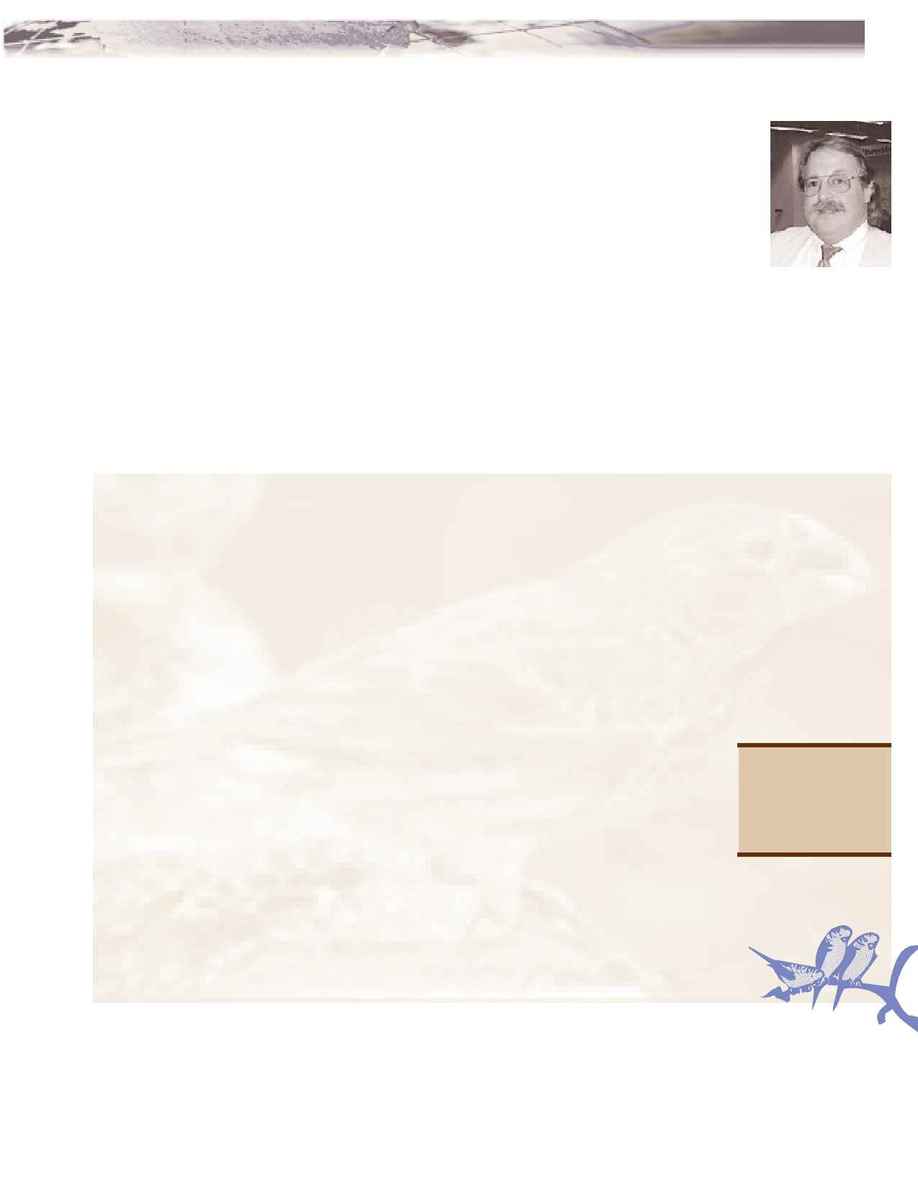
Making of a Modern Librarian
Like many science librarians, Stoss began his career
as a science researcher. He has more than 25 years
of experience in the field of environmental toxicology
and information management, specializing in aquatic
ecology, acid rain, global environmental change, and
chemical risk assessments. Stoss already held an
undergraduate degree in biology and a master's
degree in zoology when he obtained an MLS degree
from Syracuse University's School of Information
Studies. He continues to publish numerous articles in
both science and library database journals, such as
Geotimes and Database, and is Associate Editor of
Information Resources in Toxicology (Academic, 2000).
Stoss' background comes as no surprise to Julie
Hurd, Chair-Elect to the Science and Technology
Section of the American Library Association (ALA)'s
Association of College and Research Libraries.
According to Hurd, becoming a librarian is often a
career option for people with scientific backgrounds
and interests in solving information-related problems.
As a result, science librarians are more in tune to
the needs of academic researchers. They are also
emerging as information technology experts, as
adept in helping people use digital resources as they
are at helping them negotiate the library stacks. "I
see many new roles for librarians in the future. Some
of them are digitally transformed versions of old
roles and others are novel, such as the role Fred
Stoss has identified in developing Web sites in
support of academic programs," said Hurd.
In July 2000, the ALA annual meeting in Chicago
will host a program on emerging functions for
librarians in the digital age. The program will
focus on the difficulties of translating traditional
print media to the Internet. "New ways of presenting
scientific information are emerging, and not just
digital versions of print things," explained Hurd. "We
need to help users take full advantage of them."
Science Librarian as Communicator
In the age of the Internet and electronic databases,
some library patrons are often overwhelmed by the
dazzling varieties of electronic sources and the
amount of information available. Stoss often finds
himself in demand by members of the university
community to teach search techniques using the
Customer Profile:
Fred Stoss, Science Librarian
No need to fly to the Galapagos to measure finch
beaks. You can cancel that cruise down the Nile to
see the diverse array of cichlid fish in Lake Victoria.
To view evidence of evolution in action, all you really
need to do is take a quick trip to the Web site of the
University of Buffalo's Evolutionary Biology class
and see the latest breed to emerge: the modern
science librarian. Despite the predictions of some
analysts, librarians have not disappeared with the
digital revolution. The selective pressure of new
technology, however, has forced librarians to adapt
to new roles.
Although you won't find a picture of the modern
science librarian anywhere on the Web page, it is
easy to find the presence of Fred Stoss. Stoss,
biological sciences librarian at the University of
Buffalo's Science and Engineering Library (SEL),
was the driving force behind developing a site for
the students enrolled in BIO 200, Evolutionary
Biology, a class that uses evolution as a unifying
theme for biological concepts.
Stoss describes his primary task as teaching biology
students and faculty how to best use the information
resources held by the SEL. As electronic resources
become more sophisticated, librarians are increasingly
being called upon to help people learn how to use them
more efficiently and effectively. "Finding information,
whether it is from a database or the Web, is not diffi-
cult, but finding relevant information is," said Stoss.
Stoss aggressively promotes SEL's well-kept
resources, in both the library's newsletter, which he
edits, and in person. In the case of BIO 200, Fred
Stoss and Distinguished Teaching Professor, Clyde
Herreid, came up with the idea of pursuing university
funding to build a Web site as an integral class
component. Typically, class Web sites contain maybe
a syllabus and perhaps a few links of interest. The
Evolutionary Biology site, however, includes quizzes
and sample tests, study guides, study hints from past
students, and a comprehensive list of evolution links
elsewhere on the Web. "Student response," said
Stoss, "has been tremendous."
BIOSIS Evolutions
3
continued on page 4
Fred Stoss
See the University of
Buffalo's Evolutionary
Biology class at:
www.bio200.buffalo.com
